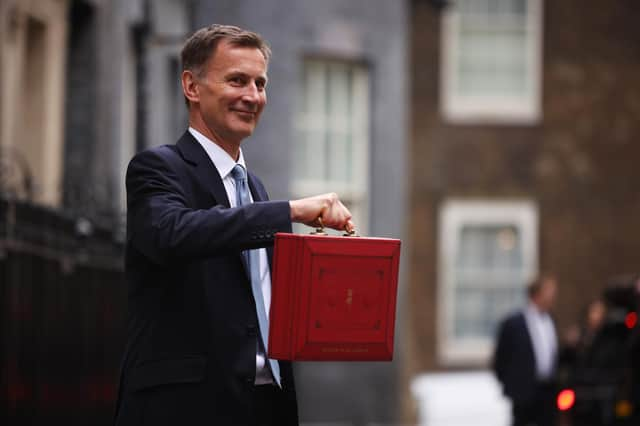UK Budget: Cutting the national debt is a pressing national priority – Scotsman comment


In 2008/9, the UK’s national debt was £822 billion, representing 53.1 per cent of our gross domestic product, a measure of the size of the economy. As of March last year, it was more than £2.5 trillion, slightly above 100 per cent of GDP – compared to Germany’s figure of 65.9 per cent – although it has since dipped just below that bleak threshold.
This matters for a number of reasons. The cost of paying interest on high levels of debt means there is less money to spend on public services like the Armed Forces, the NHS and so on. This can also make lenders more reluctant to loan money to the UK, so interest rates go up, increasing the cost further.
Advertisement
Hide AdAdvertisement
Hide AdTherefore, if the UK Government is to be able to respond to major shocks to the economy that could be coming over the horizon – events like the 2008 financial crash, the Covid pandemic and the energy crisis sparked by Vladimir Putin’s invasion of Ukraine – it should be looking to reduce the national debt.
According to remarks released ahead of today’s UK Budget, Chancellor Jeremy Hunt was expected to say: “With the pandemic behind us, we must once again be responsible and increase our resilience to future shocks. That means bringing down borrowing so we can start to reduce our debt.”
However it is also expected that he will announce a further 2p cut in National Insurance, at a cost of £20 billion to the Exchequer. Adam Corlett, of the Resolution Foundation think tank, was among those who questioned whether the UK could afford such a tax cut “given the insufficient outlook for public spending and the need to reduce our national debt”.
There is obviously a balance to be struck and taxes are at a historically high level. Presumably Hunt will be hoping that taking less money out of people’s pay packets will stimulate the economy – without having a significant inflationary effect or risking a repeat of anything like the Liz Truss fiasco.
But, make no mistake, cutting our national debt is a pressing national priority.
Comments
Want to join the conversation? Please or to comment on this article.
